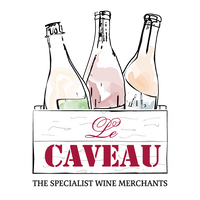Granato further establishes Foradori as one of Italy's premier winemakers. This is a stunning red from start to finish. The wine bursts onto the palate with a never-ending kaleidoscope of dried roses, spices, pomegranate and raspberries. 100% Teroldego. As with all Foradori wines: certified-biodynamic farming; hand harvest; fermentation with indigenous yeasts; minimal sulfur use (not until racking and bottling). Like all of the estate's reds, the fruit for Granato comes from the Campo Rotaliano plateau.
It was Foradori's first riserva-level Teroldego, first bottled by Elisabetta in 1986 and continuously since then. It comes from the original estate vines, all still pergola-trained, the oldest going back to 1938 and the youngest to 1956 (a parcel totalling 4 hectares). And lastly, it is the most traditional of the special Teroldego bottlings, not amphora-aged like Morei or Sgarzon, but rather in large oak foudres for 15 months; notably, it began as a somewhat internationally-styled wine, aged in French barrique, including some new, but the last vintage to be touched by barrique was 2008.
Granato means "garnet" in Italian and is also a reference to the pomegranate or melograno, that fruit having Mediterranean origins like the first grape vines brought to Italy millenia ago.
AZIENDA AGRICOLA FORADORI
Mezzolombardo
Certified organic by ICEA and Biodynamic by Demeter
Azienda Agricola Foradori is a 29-ha biodynamic estate in Mezzolombardo (Trento). Two distinct terroirs can be found, Campo Rotaliano (alluvial, gravel and sand) and Fontanasanta (mainly calcareous clay).
Located in the heart of Campo Rotaliano surrounded by the Dolomites, the estate was built in 1901 and has been owned by the Foradori family since 1939. Since then, they have been working to resurrect the ancient local variety Teroldego, from 2002 the estate converted to biodynamic viticulture.
It was Elisabetta Foradori and Rainer Zierock’s work that led to the conservation and regeneration of the Teroldego grape genetics through the cultivation of the grape’s original genotypes. Today their children Emilio, Theo and Myrtha Zierock, the fourth generation, continue in their footsteps in running the estate.
Aside from wine, the family is producing vegetables and breeding Tyrolean Grey cattle for cheese production.
“As guardians of the land we believe our work is measured with time, with nature’s rhythms, with the anticipation for the plants to grow, to age, to give fruit, for the wine’s slow evolution in the silence and darkness of the winery”.




